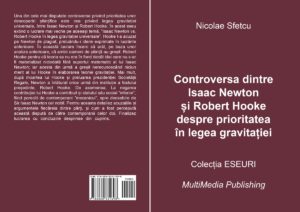 A scientific theory, according to Popper, can be legitimately saved from falsification by introducing an auxiliary hypothesis to generate new, falsifiable predictions. Also, if there are suspicions of bias or error, the researchers might introduce an auxiliary falsifiable hypothesis that would allow testing. But this technique can not solve the problem in general, because any auxiliary hypothesis can be challenged in the same way, ad infinitum. To solve this regression, Popper introduces the idea of a basic statement, an empirical statement that can be used both to determine whether a given theory is falsifiable and, if necessary, to corroborate falsification assumptions.
A scientific theory, according to Popper, can be legitimately saved from falsification by introducing an auxiliary hypothesis to generate new, falsifiable predictions. Also, if there are suspicions of bias or error, the researchers might introduce an auxiliary falsifiable hypothesis that would allow testing. But this technique can not solve the problem in general, because any auxiliary hypothesis can be challenged in the same way, ad infinitum. To solve this regression, Popper introduces the idea of a basic statement, an empirical statement that can be used both to determine whether a given theory is falsifiable and, if necessary, to corroborate falsification assumptions.
DOI: 10.13140/RG.2.2.22162.09923
Author: Dictionaries
Problem of induction
The problem of induction (also: Humean problem or Hume problem) is a basic problem of epistemology. It relates to the question of whether and when a conclusion by inducing individual cases to a generally applicable law is permissible. It was first mentioned by David Hume around 1740 . Although the problem of induction was … Read More
The post Problem of induction appeared first on SetThings.
Hallucination
(My eyes at the moment of the apparitions by August Natterer, a German artist who created many drawings of his hallucinations.) A hallucination is defined, in psychiatry, as a sensory perception without the presence of a detectable stimulus: for example … Read More
The post Hallucination appeared first on SetThings.
Evolution and Ethics of Eugenics
 As eugenics is defined, it is very difficult to make a clear distinction between science (medicine, genetic engineering) and eugenics as a included field. And to set a line over which genetic engineering should not go further, according to moral, legal and religious norms. If we accept the help of genetics in finding ways to fight cancer, diabetes, or HIV, we also accept positive eugenics as they are defined now. And if we accept genetic screening, and interventions on the unborn baby, or abortion, we also implicitly accept negative eugenics. In addition, at government level, although eugenics are officially denied, it has been legalized in many countries until recently, and is still accepted and legalized, albeit in subtle forms, even these days. The section Introduction defines the term and classification modes. The section History of Eugenics follows eugenics from the ancient period, the introduction of eugenics by Francis Galton, the practice of eugenics as a state policy in various countries, and the present eugenics (liberal eugenics). I then analyze various issues raised by the Ethics of Liberal Eugenics, and I have developed a special section for the Future of Eugenics, focusing on the human genome project. Finally, in the Conclusions, I express my personal views on the current practice of eugenics.
As eugenics is defined, it is very difficult to make a clear distinction between science (medicine, genetic engineering) and eugenics as a included field. And to set a line over which genetic engineering should not go further, according to moral, legal and religious norms. If we accept the help of genetics in finding ways to fight cancer, diabetes, or HIV, we also accept positive eugenics as they are defined now. And if we accept genetic screening, and interventions on the unborn baby, or abortion, we also implicitly accept negative eugenics. In addition, at government level, although eugenics are officially denied, it has been legalized in many countries until recently, and is still accepted and legalized, albeit in subtle forms, even these days. The section Introduction defines the term and classification modes. The section History of Eugenics follows eugenics from the ancient period, the introduction of eugenics by Francis Galton, the practice of eugenics as a state policy in various countries, and the present eugenics (liberal eugenics). I then analyze various issues raised by the Ethics of Liberal Eugenics, and I have developed a special section for the Future of Eugenics, focusing on the human genome project. Finally, in the Conclusions, I express my personal views on the current practice of eugenics.
CONTENTS:
Abstract
Introduction
New Eugenics
The Future of Eugenics
Conclusions
Bibliography
DOI: 10.13140/RG.2.2.28662.45120
MultiMedia Publishing EPUB (ISBN 978-606-033-215-2), Kindle (ISBN 978-606-033-214-5), PDF (ISBN 978-606-033-216-9) https://www.telework.ro/en/e-books/evolution-and-ethics-of-eugenics/
Equal opportunities
As a social value, equal opportunities is a complex concept. The term equality is, in fact, polysemous, and therefore subject to interpretation. Objectivity in the definition given in this article will therefore be relative. Note also the ambiguity of the … Read More
The post Equal opportunities appeared first on SetThings.
Audiobooks
An audiobook is a book or text that has been recorded to be read aloud; it can also be the result of the use of speech synthesis. The relationship to “reading” is modified by the use of hearing, rather than … Read More
The post Audiobooks appeared first on SetThings.
Animal ethics
Animal ethics is the branch of ethics that studies the moral responsibility of the human species towards other animals. This discipline examines the moral judgments that can be made on the current treatment of animals and asks questions about our … Read More
The post Animal ethics appeared first on SetThings.
Isaac Newton vs. Robert Hooke on the law of universal gravitation
 One of the most disputed controversy over the priority of scientific discoveries is that of the law of universal gravitation, between Isaac Newton and Robert Hooke. Hooke accused Newton of plagiarism, of taking over his ideas expressed in previous works. In this paper I try to show, on the basis of previous analysis, that both scientists were wrong: Robert Hooke because his theory was basically only ideas that would never have materialized without Isaac Newton’s mathematical support; and the latter was wrong by not recognizing Hooke’s ideas in drawing up the theory of gravity. Moreover, after Hooke’s death and taking over the Royal Society presidency, Newton removed from the institution any trace of the former president Robert Hooke. For this, I detail the accusations and arguments of each of the parts, and how this dispute was perceived by the contemporaries of the two scientists. I finish the paper with the conclusions drawn from the contents.
One of the most disputed controversy over the priority of scientific discoveries is that of the law of universal gravitation, between Isaac Newton and Robert Hooke. Hooke accused Newton of plagiarism, of taking over his ideas expressed in previous works. In this paper I try to show, on the basis of previous analysis, that both scientists were wrong: Robert Hooke because his theory was basically only ideas that would never have materialized without Isaac Newton’s mathematical support; and the latter was wrong by not recognizing Hooke’s ideas in drawing up the theory of gravity. Moreover, after Hooke’s death and taking over the Royal Society presidency, Newton removed from the institution any trace of the former president Robert Hooke. For this, I detail the accusations and arguments of each of the parts, and how this dispute was perceived by the contemporaries of the two scientists. I finish the paper with the conclusions drawn from the contents.
Keywords: Isaac Newton, Robert Hooke, law of gravity, priority, plagiarism
CONTENTS
Abstract
Introduction
Robert Hooke’s contribution to the law of universal gravitation
Isaac Newton’s contribution to the law of universal gravitation
Robert Hooke’s claim of his priority on the law of universal gravitation
Newton’s defense
The controversy in the opinion of other contemporary scientists
What the supporters of Isaac Newton say
What the supporters of Robert Hooke say
Conclusions
Bibliography
14.01.2019
DOI: 10.13140/RG.2.2.19370.26567
MultiMedia Publishing EPUB (ISBN 978-606-033-206-0), Kindle (ISBN 978-606-033-205-3), PDF (ISBN 978-606-033-204-6) https://www.telework.ro/en/e-books/isaac-newton-vs-robert-hooke-on-the-law-of-universal-gravitation/
Isaac Newton vs. Robert Hooke on the law of universal gravitation
On the development of consciousness – An interpretation of the meaning of life
“On the development of consciousness” is looking for reasons of our existence and answers to the unanswerable. The book takes you from everyday life and puts you in front of your psyche to get you to the core of being … Read More
The post On the development of consciousness – An interpretation of the meaning of life appeared first on SetThings.
Messages From Beyond Time – Conversations With The Divine Self
I read in a book that poverty belongs to those who do not want to exit their comfort zone to discover their passion or their calling, hidden within their soul. I wrote this book after I lived the experience of … Read More
The post Messages From Beyond Time – Conversations With The Divine Self appeared first on SetThings.